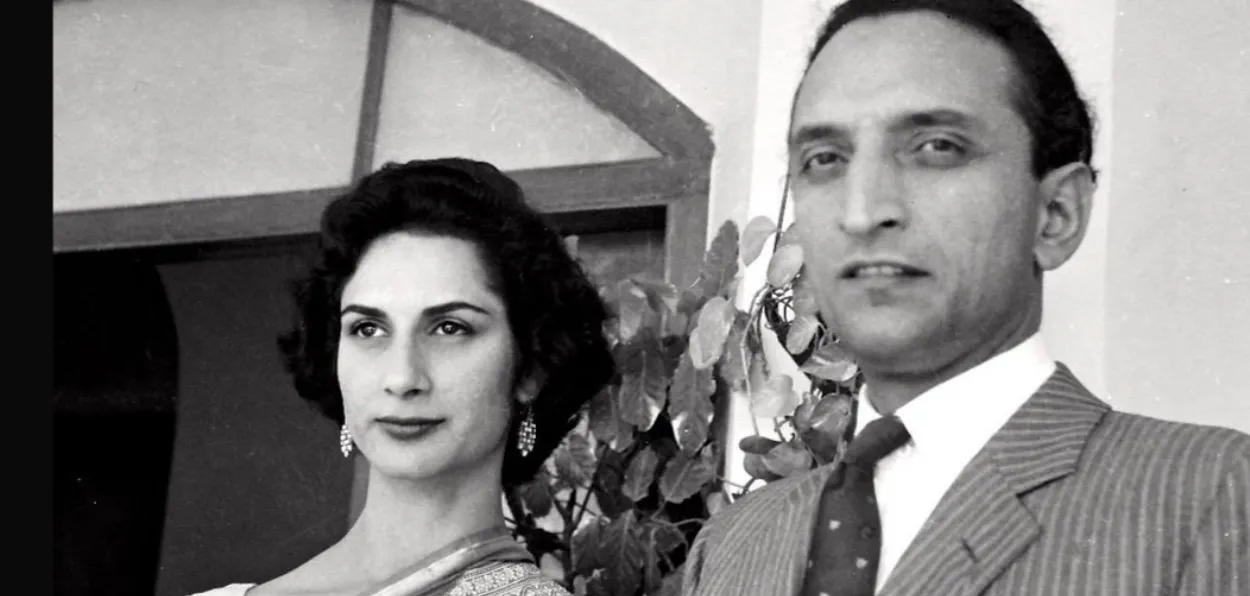
Saquib Salim
At the time of the partition of India, the army officers of the Indian Army were asked to choose between India and Pakistan in 1947. Among the Muslims, there were instances in families when one brother remained in India while their brothers opted for Pakistan.
Sahibzada Yunus Khan and Sahibzada Yaqub Khan, both from the Royal Family of Rampur, had served in the Indian Army during the Second World War. After the War was over and the power was transferred to India and Pakistan, Yaqub chose to join Pakistan while Yunus remained with India.
A few months after the partition Pakistan Army invaded Kashmir. The national duty called Yunus to lead the Indian soldiers against a regiment commanded by his younger brother. Did Yunus budge from national duty? Did his love for his brother overpower his love for his motherland? No.
Pakistani journalist Hamid Mir writes, “The two brothers met face-to-face with guns in their hands, spitting out bullets in rapid fire. A bullet fired from the gun of Major Yunus Khan injured Major Yaqub Khan. When the elder brother realized that he had injured his younger brother, he shouted, “Don’t grieve Chotey (younger brother). We are soldiers, and we did our duty.”
“Later on, Colonel Maneckshaw and Colonel Jasbir Singh of the Indian Army commended Major Yunus Khan but also said sorry for his brother Yaqub.”
_(1).png) Writing about the incident, M Ghazali Khan, a prominent Muslim journalist, wrote, “What it also shows, which the hard and soft-Hindutva elements fail to see, is that the love of Indian Muslims for their motherland is in no way less than that anybody else in the country. They fail to understand that Indian Muslims were neither the ‘enemies within’ in 1947 nor are they today.”
Writing about the incident, M Ghazali Khan, a prominent Muslim journalist, wrote, “What it also shows, which the hard and soft-Hindutva elements fail to see, is that the love of Indian Muslims for their motherland is in no way less than that anybody else in the country. They fail to understand that Indian Muslims were neither the ‘enemies within’ in 1947 nor are they today.”
In 1965, the Pakistani Army was facing huge reverses in the Sialkot Sector. Their tanks were being destroyed by 16 Cavalry of the Indian Army. Major Mohammed Ali Raaz Sheikh was leading the Indian charge against the Pakistani Armoured Division, equipped with American-made tanks. What makes it more interesting is the fact that the Brigadier leading the tanks on the Pakistani side was his own brother, who had opted for Pakistan in 1947.
Rather than being soft on his brother’s side, Major Sheikh became fiercer in dealing with the enemy. Things came to a pass to deal with him, his Pakistani counterpart, his brother, passed an order to carry out his assassination.
Lt. Beg was sent into the Indian territory in the dead of the night. “He saw a Major in his radio headset who was poring over his maps, planning for another day’s battle. With no time to lose, Lieutenant Beg shot the Indian Major through the head. But before leaving the wounded Indian officer, Lieutenant Beg decided to take along some proof of having accomplished his mission. He quickly unbuttoned the shoulder flaps of the Indian Major and pulled out the cloth epaulets of his ranks from his shoulders.
“On this was also embroidered ‘16 CAV’, the title of his regiment. In the breast pocket of the Major, he also found a holy pendant that some Muslims carry on them as a good luck charm. His job done, this young Lieutenant with his raid party then quickly crossed over into the territory that Pakistani troops were still holding onto before dawn broke.”
Major Sheikh died the next day in the Army hospital and was awarded the Vir Chakra, the third-highest gallantry award in India.
ALSO READ: Pahalgam terror attack: Indian Muslims' protests unprecedented
There are many such examples where the Indian Muslims fought against their blood relatives from Pakistan. So, the next time, don’t ask - religion or nation - do ask - family or nation. Indian Muslims have answered the question with their blood.
